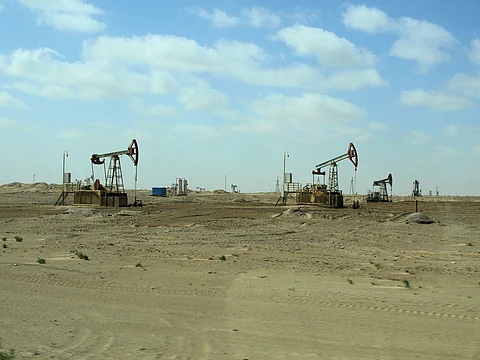

The Iraqi Finance Ministry has suspended salary payments to public sector workers in the semi-autonomous Kurdistan Region, citing Erbil’s alleged failure to remit oil and non-oil revenues to the central government.
The move prompted a lawsuit on Sunday from Kurdish workers to Iraq’s Federal Supreme Court, the country’s highest judicial authority, seeking an injunction to compel the government to resume payments.
According to the Finance Ministry, the Kurdish Regional Government (KRG) has also exceeded its constitutionally mandated 12.67% share of Iraq’s 2025 federal budget, making further disbursements illegal under current legislation. The ministry argues that Erbil’s alleged non-compliance with budget terms justifies the suspension of transfers.
Erbil, however, disputes the claim and maintains that Baghdad still owes the region approximately $3 billion in delayed transfers, with a total of $6.5 billion in outstanding allocations yet to be delivered.
The payment standoff comes amid intensifying tensions over control of energy resources. At the center of the dispute are recent multibillion-dollar energy agreements between the KRG and American firms—deals Baghdad claims were made unilaterally and without federal approval.
Last month, the KRG signed contracts worth over $110 billion with U.S. companies aimed at expanding the region’s oil and gas infrastructure. Baghdad responded sharply, with the Oil Ministry filing a legal challenge to invalidate the agreements. Iraqi Oil Minister Hayyan Abdul Ghani declared that any contracts signed without federal involvement are “null and void.”
Simultaneously, the Iraqi federal government has been pursuing its own energy partnerships. State-owned Basra Crescent recently finalized an agreement with Chinese firm Geo-Jade Petroleum to expand output at the Tuba Oil Field in southern Iraq. The deal is expected to increase daily oil production from 20,000 to 100,000 barrels and process up to 50 million cubic feet of associated gas per day. It also includes the construction of power plants, industrial facilities, and refineries.
The dueling energy strategies underscore the growing rift between Baghdad and Erbil. While the central government courts Chinese investment to expand southern oil production, Kurdish authorities continue to align with traditional Western partners—particularly the United States—highlighting broader divisions over control, revenue sharing, and Iraq’s constitutional framework.